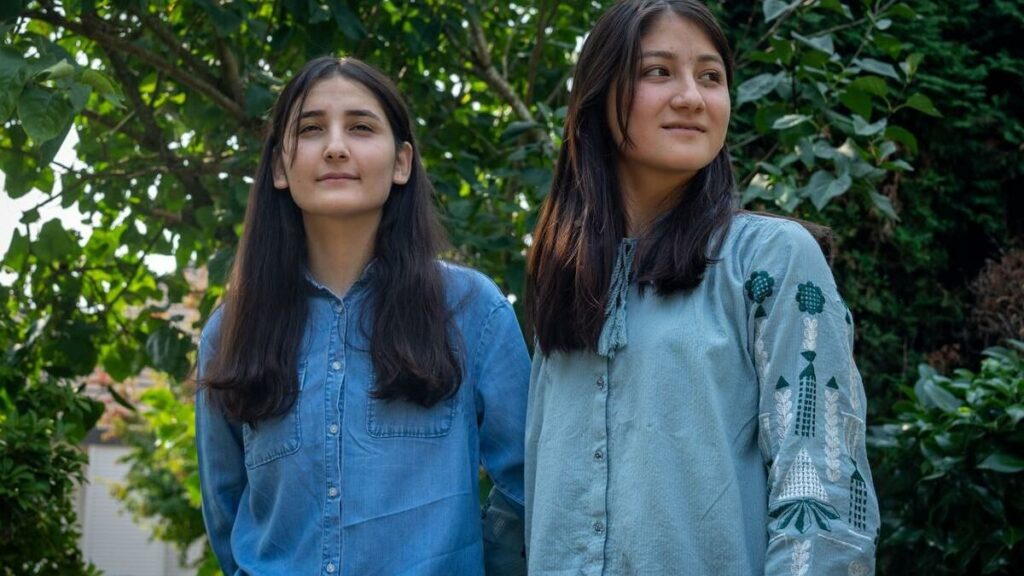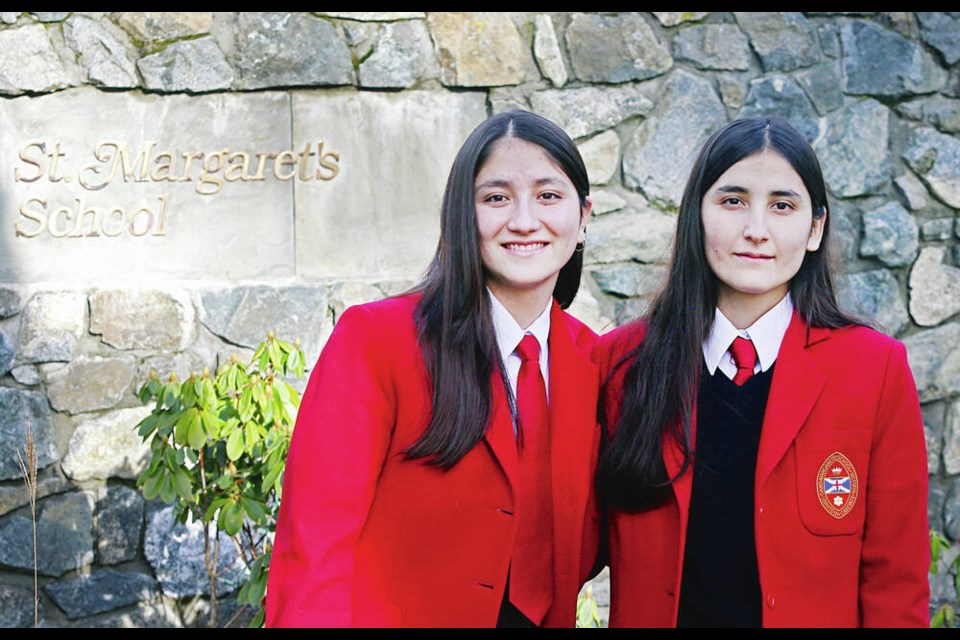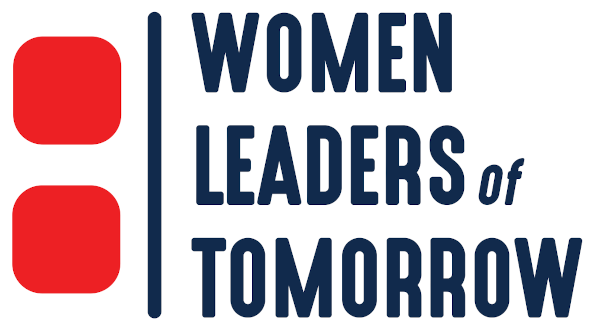These sisters’ education centres were bombed by ISIS. Here’s how they escaped to start school in Canada
The original article was published on Toronto Star. Here is the full link: https://www.thestar.com/news/canada/these-sisters-education-centres-were-bombed-by-isis-here-s-how-they-escaped-to-start/article_8fbee586-8ea0-5664-910b-2141bee6ba03.html

Ehsanullah Amiri is a Toronto-based general assignment reporter for the Star. Reach him via email: eamiri@thestar.ca.
With help from an NGO’s scholarship, teenagers who got out of Kabul begin in a private all-girls school in Victoria. “We saw the talent and commitment in them.”By Ehsanullah Amiri Staff Reporter Sunday, September 3, 20234 min to readArticle was updated Sep 3, 2023.


Torpikai, left, and Zarmina Sultani are pictured in Surrey, B.C., during their second week in Canada, before they started school in Victoria.


For months, Zarmina Sultani studied in the bomb-damaged classroom of a Kabul educational centre that had been the target of a deadly October 2022 attack by the Islamic State group.
Her sister Torpikai was studying at another centre in the city that had been previously targeted.
With threats of violence and Taliban school crackdowns, the teenagers looked for a lifeline.
This past week they started learning in a very different environment. They got a chance to continue studying on a scholarship at a private all-girls school in Victoria.
“We had school today. We are very excited,” Torpikai said after their first day.
A photo posted to social media showed them smiling in matching grey zip-up sweatshirts and black shoulder bags on a ferry cruising to Victoria from Surrey, B.C.
“There are many students from different countries, like Japan, Ukraine, Mexico,” Torpikai said. “Students and teachers treat us well.”
St. Margaret’s School reached out last summer to Friba Rezayee, founder of the NGO, Women Leaders of Tomorrow, asking if she had candidates for the school’s STEM scholarship. Rezayee, an Afghan-Canadian who once was her home country’s first female Olympian, said her organization supports Afghan female students and athletes with fellowships, mentorships and online classes, particularly those whose schools were shut by the Taliban.
You might be interested in
- 5 hrs ago
The two teenagers, who were also in the NGO’s online class, were among hundreds of applicants competing for a scholarship. A committee from Women Leaders of Toronto made the selections. “Their application was the best among hundreds,” she said. “We saw the talent and commitment in them.”
Since the fall of Afghanistan to the Taliban, the Vancouver-based organization has helped secure 18 fellowships for Afghan girls, including 10 for university. Fifteen girls arrived in Canada and are pursuing their studies, with three in waiting, she said. While this group of girls has stood out, she said, “all Afghan women should be supported.”
Last March, Torpikai, who’s now 19, and Zarmina, 18, made it through several checkpoints in Kabul International Airport. They were headed to Pakistan for Canada’s visa interview and some paperwork for their visa. As they were getting ready to walk up to the departures terminal, a Talib stopped them asking where their male guardian was.
The girls did not have an answer. Their father had died years ago, and their three brothers could never afford the ticket or secure a visa to accompany them on their flight to Islamabad.
Panicked, they started to cry. Against the odds, their tears seemed to warm the Talib’s heart.
In what Torpikai describes as a “miracle,” one of the two Taliban officials responsible for boarding let them go, but with a promise of returning to Afghanistan.
“He felt sorry for me,” recalled Torpikai, 19.
The return never happened.
The Taliban’s conquest of Afghanistan in August 2021 was followed by restrictions on women, including banning girls from attending school above Grade 6. Despite local and international anger and condemnation, the hardline group took further steps to remove women from public life, which included a ban from working in offices and more recently shutting down women-run beauty salons.
The closure of schools revealed the regime’s true intentions — similar to how the Taliban governed in the 1990s — despite repeated promises of “moderation” by Taliban senior officials and diplomats.
“Education was the only way for us to achieve our dreams,” Torpikai said in an interview in Persian. “When they closed the way, I thought I was dead.”
Torpikai and Zarmina were born in Jaghuri, a predominantly Hazara district in Ghazni province, 150 kilometres south of Kabul. Thirteen years ago, they lost their father.
The family moved to the capital in hopes of a better education.With a family of four sisters and three brothers, their mother, who is illiterate, helped fund school and other costs by making crafts at home to sell, earning a maximum of $100 a month Canadian.
“My mother is our hero,” said the younger sister, Zarmina. “She is behind our success.”
The Hazaras made significant political and educational gains in the past two decades following the ouster of the Taliban in 2001 and with the presence of the international community. That included Hazara women seeking education and work in the government.
But in recent years, attacks on Hazaras by extremist groups, including the Taliban, have fuelled concerns that the group will suffer more if the world does not help. The Taliban have also been criticized for failing to protect Hazaras from Islamic State attacks.
Torpikai said that after their schools were shut, the sisters and other classmates began a preparation course for the countrywide university entrance exam at an educational centre in a Hazara neighbourhood in western Kabul. This was done in the hope that the Taliban might reopen their schools and universities.
Torpikai went to Kawsar Danish, an educational centre that had been bombed in October 2020 by the regional affiliated group of Islamic State, also known as ISKP. And Zarmina took classes at Kaj educational centre, another crowded tuition centre.
“I knew the risk of going to that centre,” Torpikai added, referring to the possibility that Kawsar might be bombed again. “I had to study.”
One Friday in October of 2022, she heard a loud boom and felt shaking — but it was not another attack on her centre. She soon found out that a suicide bomber had attacked Kaj. Her sister Zarmina was a student at Kaj but luckily didn’t have a class that day. “If I was there,” recalled Zarmina. “I would be among the dead or wounded.” She lost several friends in the blast.
The Islamic State claimed responsibility for that attack as well, which killed more than 50 teenage girls and boys. The attack sparked global outrage, including a protest in Toronto by the ethnic Hazara diaspora.
A few weeks after the Kaj bombing, students were called by Kaj management to resume their studies.
“My mom said, ‘Don’t go. You either will be killed or wounded,’ ” said Zarmina. “I said, ‘if I don’t go, I will die every day like an illiterate person.’ ”
Her wisdom and enthusiasm for education convinced her mother.
For months, she studied in the class that had been bombed, with damage still plainly evident.
“The sign of horror was visible on the walls,” she said. There were parts of furniture, students’ belongings and even stains from bodies.
Meanwhile, the two sisters discovered through social media a new opportunity, provided by Women Leaders of Tomorrow, to learn English online.
They started attending class, which then led to their scholarship application.
With the lack of a reliable Wi-Fi network at home for the key interview, Zarmina and Torpikai sought help from an office that had a better internet connection. Both covered their faces for fear of getting recognized by the Taliban.
Months later, both were accepted.
After spending months in Pakistan to process their visa, the two ambitious girls landed in Vancouver.
Their first impressions? “Here, people respect each other. Here, people are free.”
They were hosted for two weeks by an Afghan-Canadian volunteer in Surrey, and were taken around to see the natural beauty of the West Coast.
The family also accompanied the two girls to their school, helping them with their travel on the ferry to Vancouver Island. Their principal welcomed them with a hug.
“When we entered the school,” Torpikai said, “I felt this is place to progress, and we can do it.”
They realize how lucky they are.
“Afghan girls are very strong,” said Zarmina. “They just need an opportunity.”
___________________________________________________________________________________
Education a lifeline for Afghan sisters studying in Victoria
The original article was published on Times Colonist. Here is the full link: https://www.timescolonist.com/local-news/education-a-lifeline-for-afghan-sisters-studying-in-victoria-8067322
E-mail: ceharnett@timescolonist.com
Scholarship allowed the sisters to escape heavily restricted lives in Afghanistan, after a bombing at one of their schools in Kabul killed 52 students

Two sisters fleeing Afghanistan to study on Vancouver Island were at the final airport checkpoint at the departure gate in Kabul when they were stopped by an armed Taliban guard.
Under Taliban rule, all Afghan women must be escorted by a male guardian when travelling.
Torpikai, 20, and Zarmina Sultani, 18, were alone.
Their hearts were pounding.
“I didn’t tell them that I have a scholarship,” said Zarmina. “I tell them I will go to Pakistan and I will be back.
“Honestly, I was so scared. It was a hard situation talking with Taliban. We were just alone.”
In the end, the guard, armed with an AK47, took pity on them and waved them through. “The process was not easy, but still there was a hope inside me,” said Zarmina.
They would stay five months and five days in Pakistan, with family members they had never met, getting their Canadian visas before heading to Vancouver in August, then on to the Island, where they had received full $74,000 boarding scholarships to study at St. Margaret’s School for girls in Saanich.
The sisters have just completed their first term in Grade 10 at St. Margaret’s. They are among eight Impact Scholars — students affected by war, financial hardship or lack of access to education — funded with support from anonymous donors since St. Margaret’s began the program last year. Others come from Ukraine and Nepal.
Over cardamom tea in a campus boarding-house lounge, the girls talked about their experience.
The two grew up in Jaghori, a mostly Hazara district in Ghazni province, about 150 kilometres south of Kabul, with their six siblings — three sisters and three brothers.
They were raised by their single mother following their father’s death in 2013. The next year, the family moved to the Afghan capital of Kabul for better access to education. There, their mother, who is illiterate, earned about $100 Canadian a month through sewing and hand crafts.
When the Taliban was in power in Afghanistan from 1996 to 2001, women were banned from education and employment. But Torpikai and Zarmina had largely grown up in the post-Taliban era, and were able to attend government schools.
When the Taliban captured Kabul on Aug. 15, 2021, however, it gradually began excluding women and girls from most public spaces, prohibited them from working in offices or travelling any significant distance without a male relative, and banned them from attending school beyond Grade 6.
They could still, however, pay for tutoring at education centres that prepared students for university exams.
Then on Sept. 30, 2022, a suicide bomber blew himself up at the Kaaj educational centre in Kabul where Zarmina was studying, killing about 52 teenage students of about 300 who had come to prepare for university entrance exams, according to The Associated Press.
The Islamic State, a rival of the Taliban, claimed responsibility for the attack. Fortunately, Zarmina was not in class at the time.
“We grew up with bomb explosions — it was kind of normal for us,” said Zarmina. “But that was the first time we lost our friends.”
Torpikai, meanwhile, was taking courses at Kawsar Danish, an educational centre in Kabul that had also been bombed, in October 2020, by a group affiliated with the Islamic State. She was relieved to hear her sister wasn’t in class on the day of the Kaaj bombing, but devastated by the deaths and increasing threats.
“It was a sad day. We lost a lot of our friends and classmates,” said Torpikai.
After the deadly blast, the Kaaj education centre reopened. Zarmina recalls studying next to a room where there were still blood-stained walls and human remains.
Their mother worried that in returning to the education centres, her daughters risked being killed or maimed but the girls say they told her: “If we do not continue our education, we will die every day as illiterate persons.”
A couple of months after the Kaaj bombing, in December 2022, the Taliban announced a ban on women attending university.
With the window closing on their ability to eke out any type of education, the sisters searched for options abroad via social media. They landed on Women Leaders of Tomorrow, a non-profit incorporated in 2021, where they could learn English online and get help to apply for scholarships to study in Europe or North America.
Founder Friba Rezayee, Afghanistan’s first female Olympic athlete, came to Canada as a refugee in 2011 with her husband. She earned a degree in political science from the University of B.C. and continued advocating for women’s rights.
Even when girls education was allowed in Afghanistan, it was not prioritized, Rezayee said, recalling how she fought for equity in sports and school despite the corporal punishment she received.
“When I was 6 or 7 years old and saw the discrimination against girls, I knew it was wrong and I felt it in my body and my mind. It was something that I could not tolerate and I was just looking for the opportunity to help other girls.”
Pressured to live a traditional Islamic life, wear a hijab and keep her hair long, she instead cut it short and dyed it red. “If not me, nobody else is going to do it, so I started, I guess, the revolution from a very young age — human rights, women’s rights and women’s dignity.”
When the government in Afghanistan collapsed in August 2021, Rezayee said she received hundreds of messages from female high school, college and university students from the country, as well as athletes.
“They were in devastating situations but the only thing they asked for was to go to school,” said Rezayee. “I was definitely overwhelmed, I am still overwhelmed. I can’t help everyone but if I can help even one person, that’s one life, that’s one future.
“In Afghanistan, we say if you can educate one girl, she will educate a village.”
Torpikai and Zarmina were two of the many who contacted Rezayee’s Vancouver-based organization — which helps selected applicants to find and apply for scholarships — just a few weeks after the deadly October 2022 attack on the Kaaj educational centre.
“The only plan that we had was to leave Afghanistan,” said Zarmina.
For their interview, they found an office in Kabul with reliable Wi-Fi, covering their heads and faces as they entered for fear of the Taliban recognizing them. Once inside, they showed their faces for the interview via Zoom.
“They were devastated, I was devastated, I was crying and they sat in front of the camera and they smiled,” said Rezayee. “That spoke volumes to me, to the bravery and the hope. They said they only want their education. It was not their words but their determination.”
Rezayee said the oppression of the Taliban was inescapable. “Taliban fighters were roaming the city in pickup trucks — gunshots could be heard in videos and phone calls,” she said.
“I knew they were the right people for the scholarship.”
On Nov. 8, 2022, Torpikai and Zarmina were interviewed by St. Margaret’s. The following February, they received offer letters.
The sisters said they had little choice but to leave family and friends behind. “There was no option for me — I had just two choices: find a scholarship to continue my education or early marriage, so I had to come here,” said Zarmina.
They arrived in Vancouver on Aug. 10 from Pakistan and met their host Afghanistan-Canadian family, living in Surrey, who escorted them to Vancouver Island.
When the girls call home, their mother is elated, they said. “Although she is sad and she misses us a lot, she is so happy that we are able to go to school.”
The girls, who plan to study engineering, have already taken part in the Victoria FIRST Tech Challenge robotics competition at St. Margaret’s School in November and have been offered a chance to take part in lab work at the University of Victoria’s engineering department over the summer break.
On Monday, they will begin their second school term and work toward their longer-term goal to attend the University of Victoria. A partnership between the independent STEM school and the university includes a guaranteed entrance scholarship to each eligible St. Margaret’s student.
Meanwhile, despite international condemnation, the Taliban-led gender apartheid in Afghanistan is increasing, said Rezayee. She said she feels overwhelmed by the plight of so many Afghan girls denied education and fears they will be forgotten in a world that has seen so much more unrest in recent years.
Women Leaders of Tomorrow has helped to secure 20 scholarships for Afghan girls and women, 17 of whom are in Canada pursuing their studies, with three expected to arrive next year.
“When I look at Zarmina and Torpikai, they give me energy and hope,” Rezayee said.
For the young Afghan sisters, the stakes are even higher.
“They saved my life,” said Zarmina.
